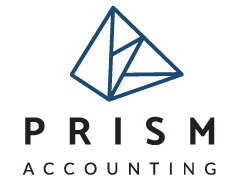On 15 October 2018, the Federal Government released proposed legislation to deny deductions in relation to holding vacant land as part of the integrity measures announced in 2018-2019 Federal Budget
The amendment will deny deductions for loss or outgoing relating to holding vacant land incurred on or after 1 July 2019.
The measure will apply to land on which there is no permanent building or other substantive permanent structure that is in use or is ready for use. If the structure is a residential building, deductions will be denied, unless the premises can be lawfully occupied and are leased or available for lease.
The limitation will apply from irrespective of whether the land was acquired for the purpose of generating rental income or for capital gain and regardless of the time of the acquisition.
When the measure will not apply
Carrying on a business
Deduction for holding vacant land will still be available to the extent the land is being used in carrying on a business by one or more of the following:
– You (taxpayer)
– your affiliate or an entity to which you are an affiliate
– your spouse or children under 18 years of age (if you are an individual)
– entity connected with you
(for definition of “affiliate” and entity “connected with” you, refer to s 995-1 ITAA 1997)
Certain kinds of entities
The restriction will not apply to the following entities:
– corporate entities
– superannuation plans other than SMSF
– managed investment trusts
– public unit trusts
– unit trusts or partnerships where each member is one of the above.
How you will be affected as an investor
Under the current law, if you acquired vacant land for the purpose of building rental property, you may be able to claim deductions for expenses associated with holding the land (e.g. land tax, interest on loan for the purpose of the acquisition, council rates) before construction for dwelling is finished. You must be able to demonstrate that you are taking active steps to construct the dwelling and make the property available for rent as soon as construction is completed.
The proposed amendments will deny deductions to investors (other than exempted entities) in respect of holding the land, if the residential building is still being built or renovated and cannot be occupied and made available for rent. Land is vacant if there is no substantive permanent building, or other substantive permanent structure that is in use or ready for use. To be substantive, the building or structure needs to be substantial in size and have an independent purpose or function.
For the purpose of the amendments, land does not refer to property title as a whole but rather to a part of the land reasonably attributable to a structure or a function. Deductions will still be available to the holder of the land to the extent that the land is not vacant and is used for income producing purposes.
Deductions for holding the land will not be denied if land is used for “carrying on a business” by yourself, your affiliate (or entities to which you are an affiliate), your spouse or child, or an entity connected with you. If you, as an owner/holder of the vacant land, lease the land to other related entities to carry on a business (e.g. as a primary producer or a property developer), the deductions will be available, but only to the extent that the land is used for carrying on a business. However, if the vacant land is leased to any other party for the same purpose, the deductions will be denied.
Investors should be warned not to categorise investment activities as business. There are multiple factors that need to be looked at in order to determine if you are in business or a mere investor. These factors include scale of the activity, regularity and repetition of the activity, extent of personal involvement in the activity and whether the activity is conducted in business-like manner, among others. Generally, investors take a more passive approach to generating income while business operators demonstrate more personal involvement.
It should be noted that the proposed amendments do not deny adding the expenses in respect of holding vacant land to the cost base of the asset for CGT purposes.
More information:
Disclaimer: All the information provided on this website is of general nature and does not constitute tax, legal or financial advice. It does not take into account your personal circumstances and is not intended to replace consultation with a qualified professional.







